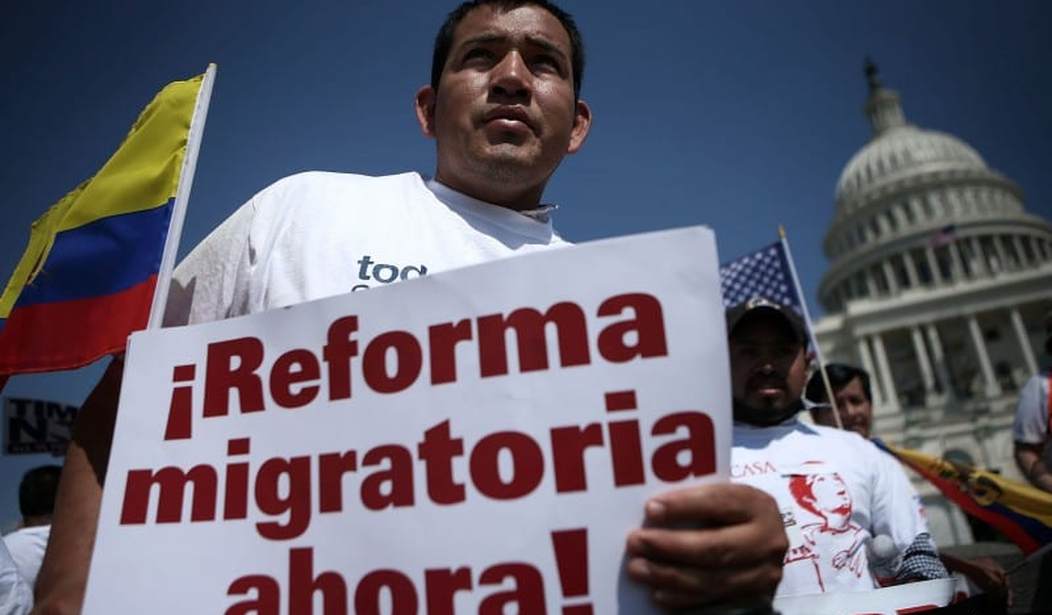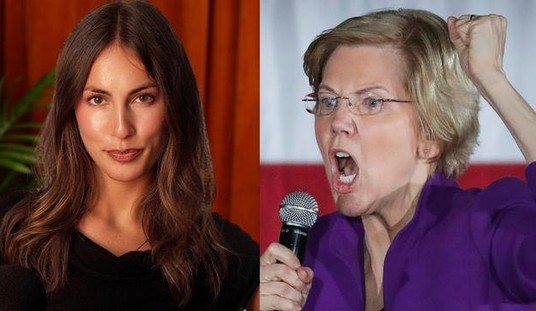WASHINGTON – Proponents of immigration reform cleared a major hurdle on Tuesday as the full Senate agreed to debate proposed legislation – but the chances for ultimately getting the package through the upper chamber remain foggy.
In a rare 82-15 bipartisan vote, including 30 Republicans voting yes, in what has been a divisive session, the Senate agreed to move the bill along despite the reservations of conservatives – including Sen. Marco Rubio (R-Fla.), one of the prime authors – that it doesn’t concentrate sufficiently on security.
Senate Republican Leader Mitch McConnell (R-Ky.) voted to permit the debate to proceed, joining others in opposing a filibuster to block debate. But that doesn’t mean he supports the legislation and that attempts to derail the effort won’t crop up in the future.
“I’ll vote to debate it and for the opportunity to amend it, but in the days ahead there will need to be major changes to this bill if it’s going to become law,” McConnell said. “These include, but are not limited to, the areas of border security, government benefits and taxes.”
McConnell said he will need more than assurances from Homeland Security Secretary Janet Napolitano that the southern border is secure before he’ll agree to support the measure.
“Too often recently, we have been reminded that as government grows it becomes less responsible to the American people and fails to perform basic functions either through incompetence or willful disregard of the wishes of Congress,” McConnell said. “Our continued failure to secure major portions of the border not only makes true immigration reform far more difficult, it presents an urgent threat to national security.”
McConnell said he is also listening to critics who maintain the bill will prove costly to American taxpayers.
“It’s a fair critique,” he said. “Those who were here illegally shouldn’t have their unlawful status rewarded with benefits and tax credits. So this bill has some serious flaws. And we need to be serious about fixing them. The goal here should be to make the status quo better, not worse. And that’s what the next few weeks are about — they’re about giving the entire Senate, and indeed, the entire country, an opportunity to weigh in on this debate, to make their voices heard, and try to improve our immigration policy.”
Sen. Dan Coats (R-Ind.) also cast a shadow over the bill’s future even though he acknowledges the current immigration system “has failed the citizens of this country.” He expressed particular concerns about border security measures
“We cannot just trust that the border will get fixed,” he said. “Steps must be taken now to secure our borders, expand employer verification and improve the existing exit system. Fixing our immigration crisis is critical to growing our economy and strengthening national security.”
The 1,076-page Border Security, Economic Opportunity and Immigration Modernization Act of 2013, as it currently stands, creates a pathway to citizenship for the estimated 11 million immigrants who entered or remained in the country without proper documentation.
Under the bill, illegal immigrants who have resided in the U.S. since Dec. 13, 2011, must seek provisional legal status that allows them to work but renders them ineligible for federal benefits. They must pay a penalty, taxes and a processing fee and can only apply for permanent status after 10 years.
A new visa program for low-skilled workers would be developed and the Department of Homeland Security would be charged with coming up with a $4.5 billion plan to gain effective control of the porous Southern border with Mexico.
A final vote on the measure, after the amendment process, is expected to come before July 4. Even if it passes, it faces a cloudy fate in the Republican-controlled House.
Regardless, the bill is getting a major push from President Obama, who said Monday that the nation’s immigration system “hasn’t kept pace with changing times and hasn’t matched up with our most cherished values.” He urged lawmakers to vote for the bill, calling it “a common-sense, bipartisan bill that is the best chance we’ve had in years to fix our broken immigration system.”
“Right now, our immigration system keeps families apart for years at a time,” he said. “Even for folks who, technically, under the legal immigration system, should be eligible to become citizens but it is so long and so cumbersome, so byzantine, that families end up being separated for years. Because of a backlog in visas, people who come here legally — who are ready to give it their all to earn their place in America — end up waiting for years to join their loved ones here in the United States. It’s not right. But that’s the broken system we have today.”
Rubio, who hails from a Cuban family and is thought to have White House aspirations, continues to provide mixed signals about his intentions even though he was a prominent member of the “Gang of Eight,” the bipartisan group that pieced the compromise package together.
Recently, Rubio has joined fellow conservatives in voicing concern that the bill doesn’t sufficiently address border security. He has indicated that he won’t vote for it in its current form despite earlier pledges.
“Border security is not an anti-immigrant measure,” he said. “I refuse to accept the idea that the most powerful nation on Earth, the nation that put a man on the moon, is incapable of securing its own border.”
Sen. Ted Cruz (R-Texas), one of the bill’s primary opponents, said he nonetheless supports the concept of immigration reform. Americans are convinced, he said, that the current system is not working and that the nation needs to secure the borders and improve and streamline legal immigration.
“On those basic principles, there is widespread bipartisan agreement, and if this body were to focus on those areas of bipartisan agreement, that’s how we would get an immigration bill passed into law,” he said.
But Democrats and the White House are standing in the way, he said, because they are insisting on a provision that provides a path to citizenship for the undocumented workers already here “and threw everything else overboard.”
“I very much hope we work together in a bipartisan manner to fix this problem in a way that secures the border, in a way that respects rule of law and in a way that improves legal immigration so we remain a nation that welcomes and celebrates legal immigrants,” Cruz said.









Join the conversation as a VIP Member